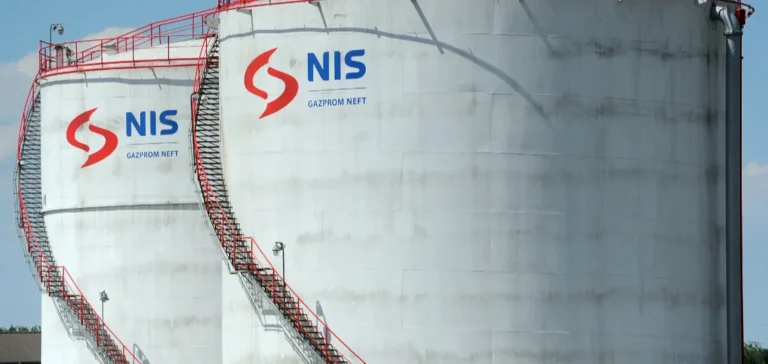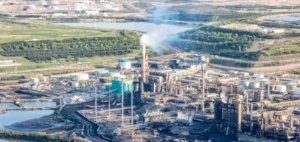The Pancevo refinery, Serbia’s sole crude oil processing facility, is facing a potential shutdown following the announced depletion of its reserves. This facility, operated by Naftna Industrija Srbije (NIS), supplies approximately 80% of the country’s fuel needs. Since early October, it has been directly impacted by US sanctions imposed on its majority Russian-owned shareholders.
NIS’s ownership structure remains dominated by Russian interests, with 45% held by Gazprom Neft and 11.3% by the Moscow-based company Intelligence. These entities, targeted by US financial restrictions on the Russian energy sector, have disrupted the commercial flows necessary to supply the refinery. Despite Belgrade’s efforts to secure a temporary exemption, no official response has yet been issued by US authorities.
Import capacity insufficient to compensate
The Ministry of Energy indicated at the end of October that crude reserves would last until 25 November. In anticipation, the government secured contracts for additional imports of petrol and diesel to avoid an immediate shortage. However, according to Belgrade-based economist Goran Radosavljevic, these measures only offer limited relief. “You can prolong the agony for a few months through additional imports, but NIS will go bankrupt if it can no longer operate,” he said.
Local estimates suggest domestic production accounted for roughly 80% of consumption, with the remainder covered by imports. This dependency on the refinery makes the country particularly vulnerable as supply chains are disrupted by international restrictions.
Negotiations with Washington at a standstill
The Serbian government has proposed acquiring the Russian stake at above-market rates if negotiations fail, arguing that the Russian side is ready to divest. The Serbian state still holds nearly 30% of NIS, with the remaining shares split among private investors. In 2008, a 51% stake was sold to Gazprom and Gazprom Neft for €400mn.
In a statement released after a special government session on the energy situation, authorities declared that “there is a sufficient quantity of oil products,” without disclosing volumes or logistical details. This statement aims to ease domestic concerns amid the risk of shortages.
Serbia’s energy strategy under pressure
In parallel with refinery-related discussions, talks are also ongoing regarding natural gas supplies. Russia currently provides around 90% of Serbia’s annual gas consumption, making any disengagement highly complex. Belgrade, which aspires to join the European Union while preserving its energy ties with Russia, now operates in an increasingly constrained diplomatic environment.
The government has so far ruled out the seizure of Russian assets on its territory, instead proposing negotiated solutions to maintain balance between its European ambitions and strategic energy interests.






















